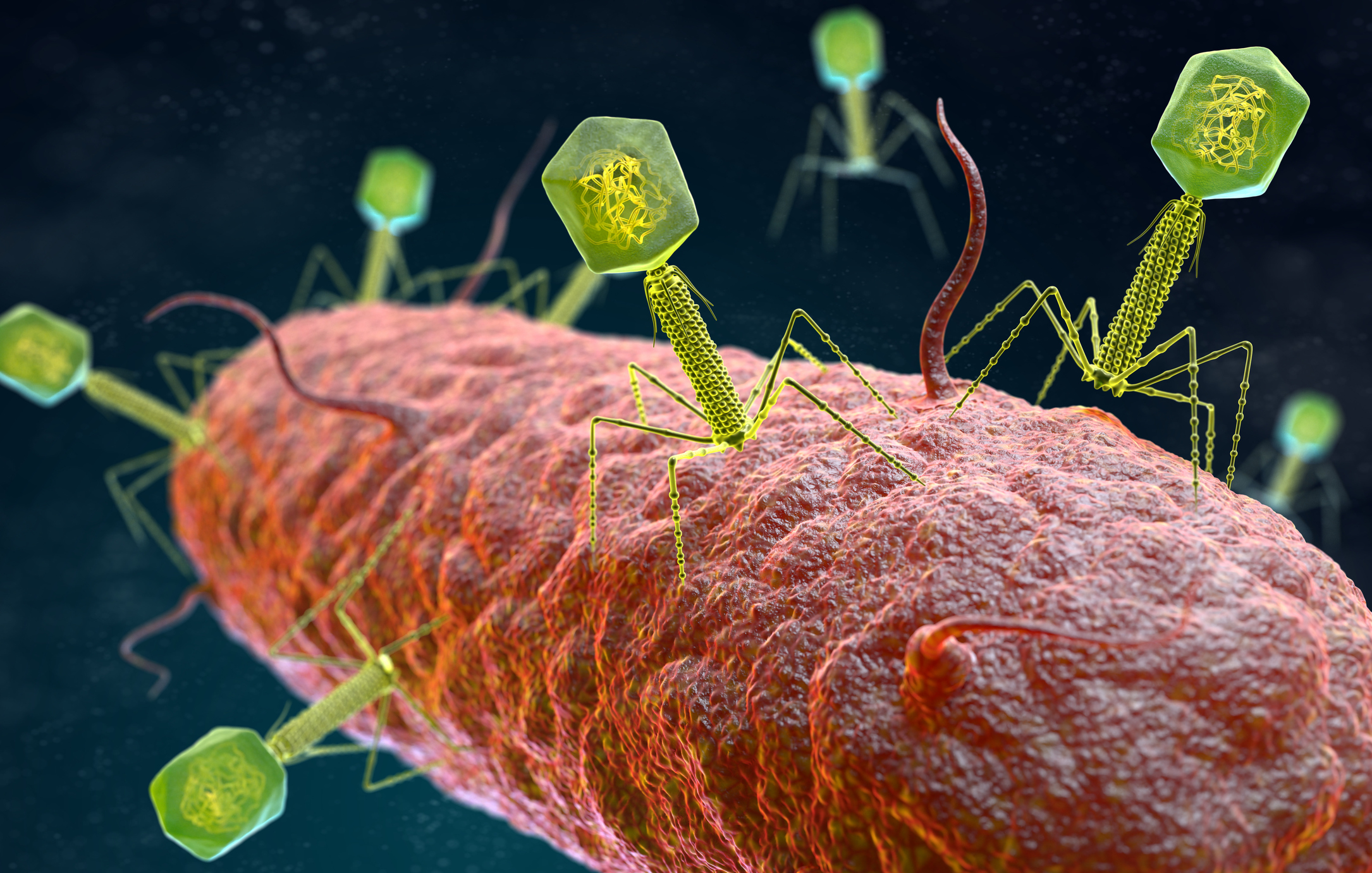
Soon after joining the faculty at the University at Buffalo School of Dental Medicine in March 2020, Kathryn Kauffman, assistant professor of oral biology, created a laboratory to study the power of bacteriophages, also known as phages.
“These viruses, which infect every kind of bacteria in and on your body, are the most abundant organisms on earth,” said Kauffman, who is currently investigating the role phages play in oral health and disease as a means to better understand phages in overall human health.
While using phages to treat bacterial infections is a hot topic with the rise in antibiotic resistance, Kauffman noted that her focus is broader. She is using complementary bioinformatic and wet lab approaches to better understand ecological and evolutionary aspects of phage biology.
“This may also contribute to a better understanding of the various dynamics of phage therapeutics down the line,” she said.
Kauffman and her team secured a two-year, $320,500 research grant from the National Institute of Dental and Craniofacial Research (NIDCR) to investigate the phages connected to Porphyromonas gingivalis (Pg), a heavily studied oral bacterium that contributes to periodontal disease, a malady that affects nearly 50% of all adults.
Co-investigators of the study are Ashu Sharma, professor and interim chair in the UB Department of Oral Biology; Frank Scannapieco, SUNY Distinguished Professor in the Department of Oral Biology; and Robert (Bob) Schifferle, professor in the Department of Periodontics and Endodontics. A key resource, Kauffman noted, was access to donor samples from a unique ongoing longitudinal study of Pg in periodontal disease led by Patricia Diaz, who is the Sunstar Robert J. Genco Endowment Chair in the School of Dental Medicine, SUNY Empire Innovation Professor in the Department of Oral Biology, and director of the UB Microbiome Center.
“Although Pg has been the subject of study for over 40 years, essentially nothing is known of its phages,” Kauffman said. “And the prevailing thought is that phages are not important in the ecology of Pg.”
Discovery of three families of viruses
What her team has found is that phages are, in fact, important. The researchers published their first paper highlighting their work in the journal Microbiome in July 2023 titled, “Phages are unrecognized players in the ecology of the oral pathogen Porphyromonas gingivalis.”
UB authors included Cole Matrishin, a doctoral student in the Department of Oral Biology; Elaine Haase, research professor in the Department of Oral Biology; and Don MacFarland, lead electron microscopist in pathology and anatomical sciences in the Jacobs School of Medicine and Biomedical Sciences at UB. They were joined by researchers at the American Dental Association (ADA) Forsyth Institute: Floyd Dewhirst, Jessica Mark Welch, Fabiola Miranda Sanchez and Tsute (George) Chen.
“Special kinds of phages, known as prophages, are able to integrate into the bacterial genome,” explained Matrishin, the lead author. “We were able to show that many Pg genomes contain one or several of these prophages. The paper also highlights that these prophages contain putative genes that may alter the physiology of Pg itself.”
In the course of their research, the team discovered three new families of viruses.
“It was the first time Pg was systematically described to contain prophages,” said Matrishin, who oversaw the naming of the new virus families. His choices, he said, honor Buffalo, the place in which the team and research came together: Alisviridae, Ludisviridae and Nixviridae whose Latin roots translate to wings, sports and snow.
Their discovery of phages in Pg now opens the door to a fresh perspective on the role and dynamics of Pg and its phages in oral health and disease, Kauffman said.
Research of phages’ interactions with every type of bacteria
However, she noted, the scope of the lab’s research doesn’t stop at just one species or one system. Rather, the group is working on mapping out the diversity of all viruses present in the oral microbiome. Kauffman received two, five-year grants from the National Institutes of Health (NIH) in 2021 to pursue this research.
The first one, for $523,237, will expand the Human Oral Microbiome Database (HOMD) to also include oral phages, and is being conducted with colleagues at ADA Forsyth. The second one, with the Human Salivary Proteome team, is for $437,689 and is a supplement to the HOMD grant. Kauffman is the co-investigator with Stefan Ruhl, UB professor of oral biology, and they are collaborating with researchers at ADA Forsyth, J. Craig Venter Institute and the University of Tennessee Health Science Center.
“We’re making the case that phages are interacting with every type of bacteria,” Haase said. “We want to look at phage interactions with other species that previous researchers have not begun to look at.”
Kauffman is enthusiastic about phages as a gateway to research experience and welcomes both undergraduate and graduate students in the lab. Currently, undergraduate biology major Devin Hendricks and third-year dental student Winifred Mei are working on uncovering new phages.
To catch the phages that infect streptococcal species that live in our mouths, Mei is looking in local Buffalo sewage. Through a collaboration with Yinyin Ye, assistant professor in UB’s Department of Civil, Structural, and Environmental Engineering, Mei and the Kauffman lab team have access to raw sewage samples from four Buffalo sewage treatment plants.
“Sewage is known to be a rich source of undiscovered phages that can infect bacteria from the human microbiome,” Kauffman said.
Kauffman said her passion for phages has been burning since she began her doctoral and postdoctoral research at the Massachusetts Institute of Technology in 2007.
“I relish continuing to study phage-bacteria interactions in the oral microbiome with the strong community of scientists at UB,” Kauffman said. “I look forward to possible upcoming opportunities to conduct phage outreach in the Buffalo Public Schools and even establish a regional phage conference.”
This story was originally published by the University at Buffalo on February 13, 2024.